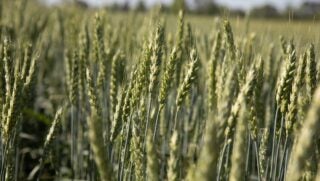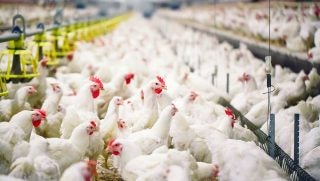Fake news. Alternative facts. Different truths.
With the state the of news lately, it can be hard enough separating facts from fiction and sorting through all the muck. The situation has allegedly gotten so bad that several Internet giants have set up methods of detecting the fake and promoting the real. Facebook and Google are the most prominent websites entering into the mythbusting business.
But agriculture has been subject to the fake news problem for quite a while now. In fact, combating that fake news is precisely why I started writing, blogging, and advocating. We have snake oil salesmen trying to promote alternative therapies. We have activist groups promoting certain production labels over other supposedly “dangerous” methods. We even have cute little phrases like “farm to table” and “local” to imply superiority. As if we didn’t have enough confusion, the food-consuming public is being inundated with these conflicting messages daily.
So, how can consumers make sure they are getting good, reliable information about agriculture, farming and food production? Here are a few suggestions.
Talk to a Farmer
If you want the real deal when it comes to a topic, the best option is to go right to the source. In this case, if you want to learn about food production, then talk to a farmer. Over the past couple years, there has been an explosion of farmers popping up online to tell their story and talk to the public. Find these people and reach out to them. If you have specific questions, you can always check out Ask the Farmers — it is an organization of farmers engaged in a variety of production methods who are ready and willing to answer questions and explain agriculture. Of course, you can always ask yours truly; I’ll either tell you the answer or find someone who can.
Check the Source
If someone is making a claim, are they backing it up with anything? I tend to find that when those activists or alternative sources are trying to sell something, the original support for the information is rather hard to find. For example, if an environmental group comes out with a report suggesting that “recent research” on a certain herbicide shows it is causing some type of catastrophic problem, there should be a link directly to the study and results. It may be behind a paywall, but it should be there somewhere. If all you can find are articles summarizing the original study, it is probably time to put up your skeptical flags.
Demand the Pedigree
Generally, if someone is going to act like an expert on any given topic, that person should have some kind of background to support them. I say “generally” because there are types like Dr. Oz who have a pretty impressive medical background, but he still engages in the fantastical. But, generally, this rule should at least point you in the right direction. If the person is giving nutritional advice, make sure they are a Registered Dietician, not just a so-called nutritionist. If the person is talking about plant health, make sure they have a background or experience with plants, like an agronomist. In other words, don’t rely on a computer tech to teach you about food safety.
Measure the Claim
Not to harp on Dr. Oz, but if the person selling you an alternative choice promises you sunshine and rainbows (or 50-pound weight loss in one week), then it probably isn’t legitimate. In other words, if it sounds too good to be true, it probably is. No organic vegetable is going to cure cancer. No free range chickens are going to produce golden eggs. No fancy label is going to fix your life. What I can tell you is that we have one of the safest, best quality food supply in the world. No magic or gimmicks required.
When evaluating claims about agriculture, farm production methods, and food safety the best bet is to use a little common sense. When you really aren’t sure, seek out the advice of those with experience and a background in the field (pun intended).
Amanda Zaluckyj blogs under the name The Farmer’s Daughter USA. Her goal is to promote farmers and tackle the misinformation swirling around the U.S. food industry. Amanda’s website can be found here, and she’s on Facebook, and Twitter.



